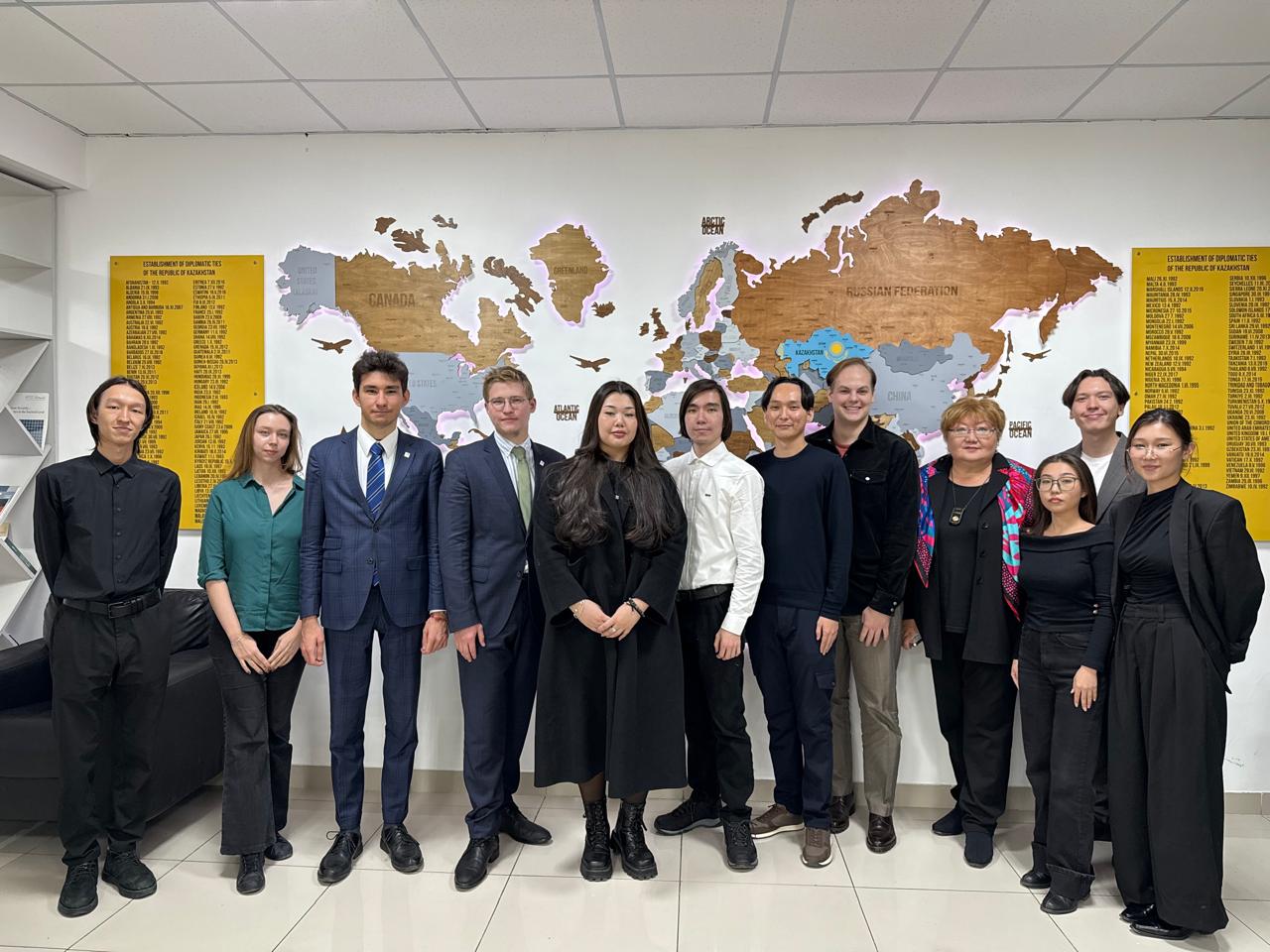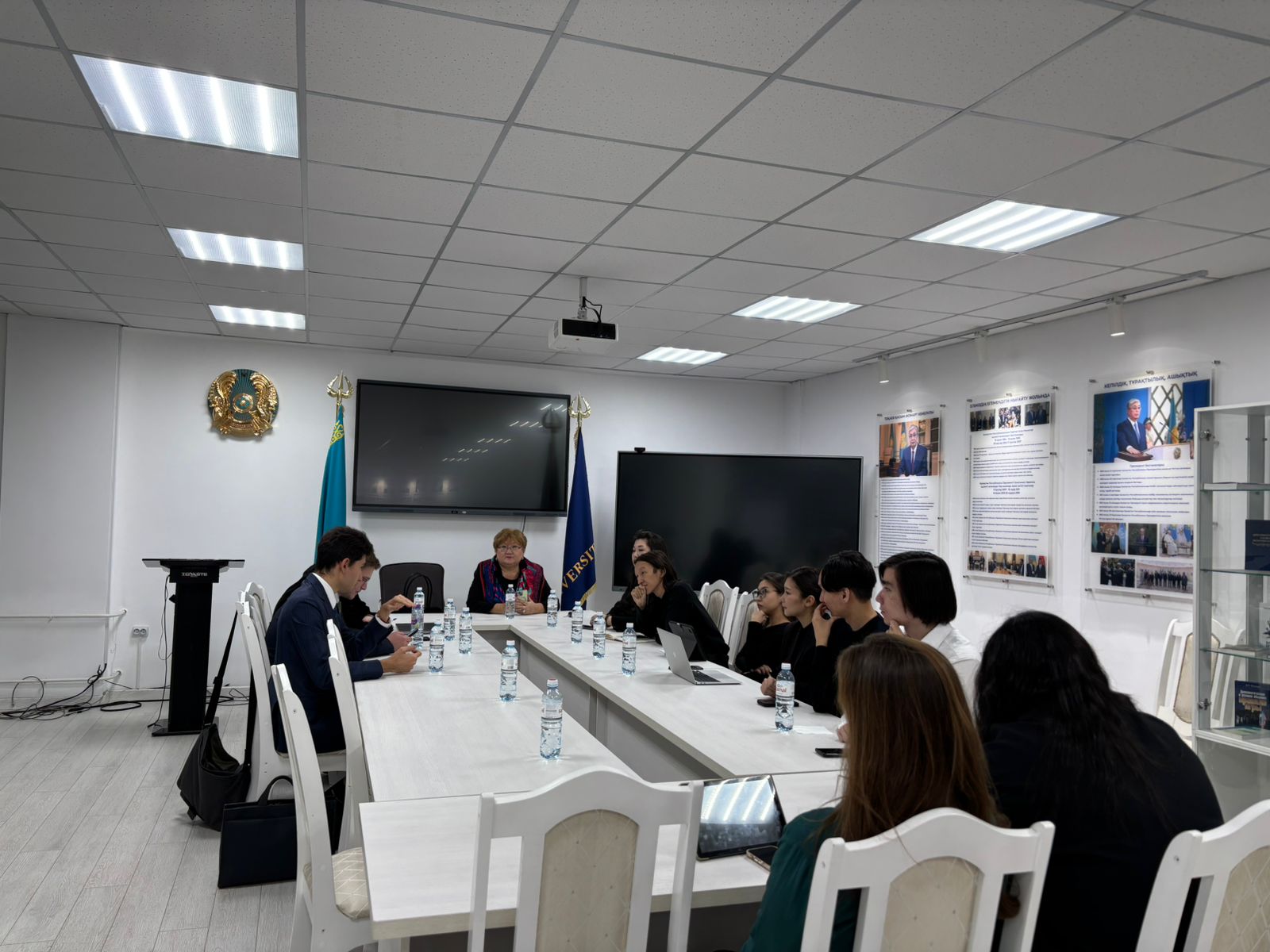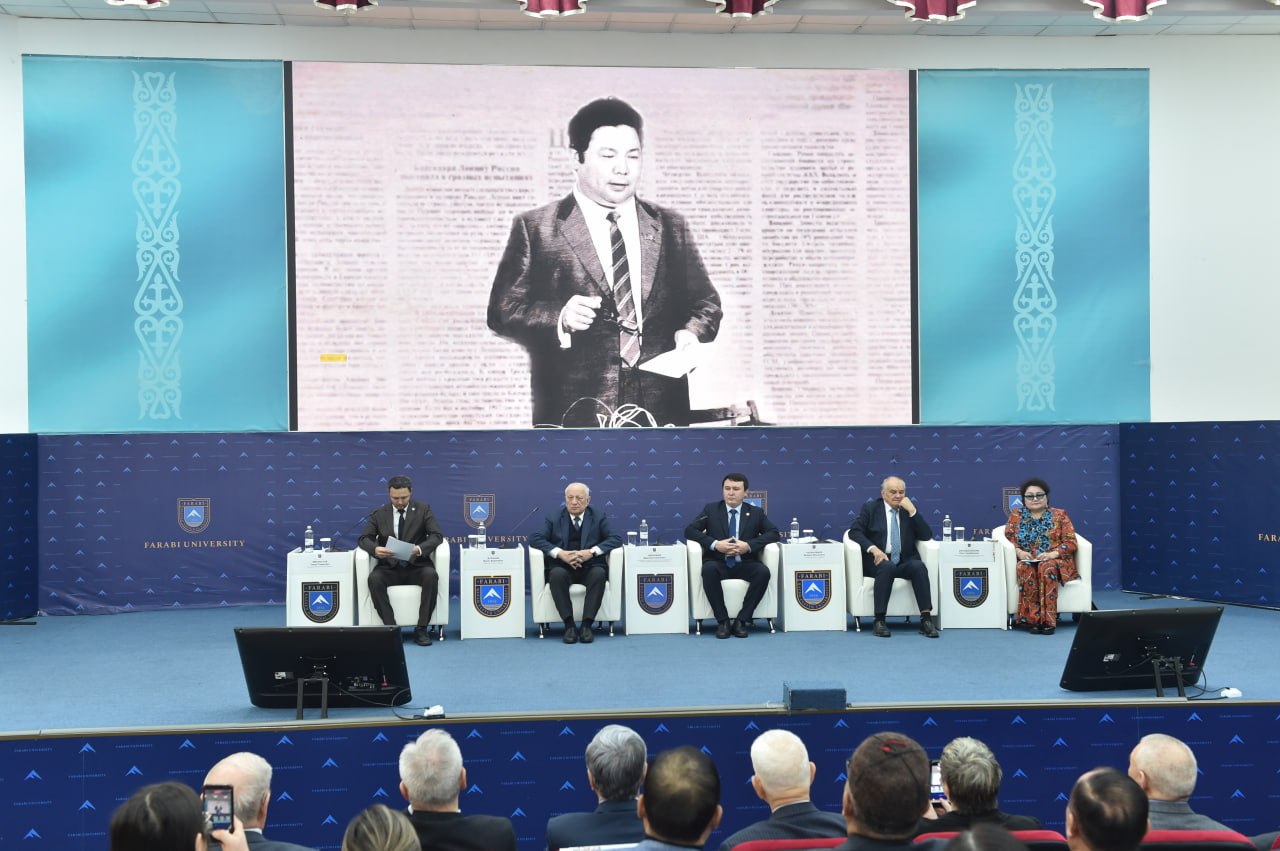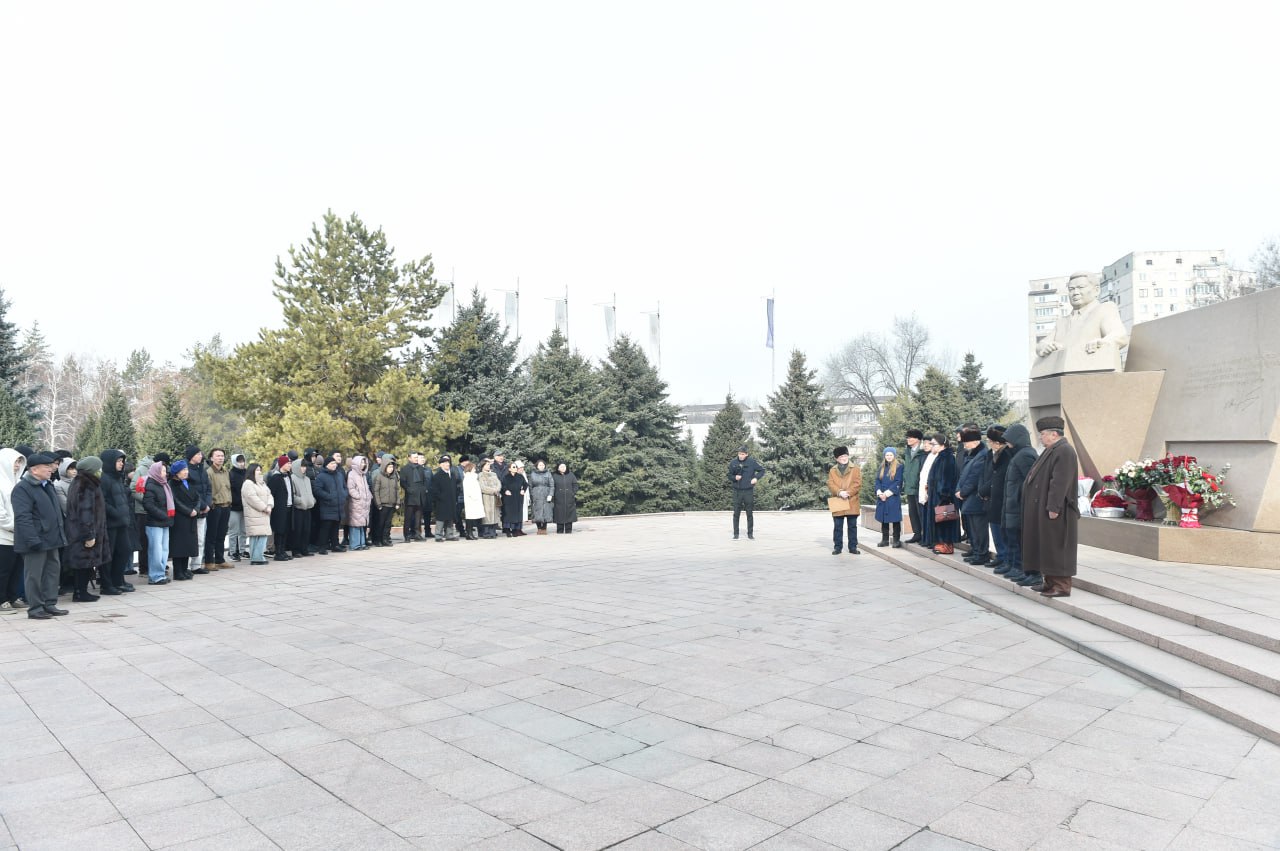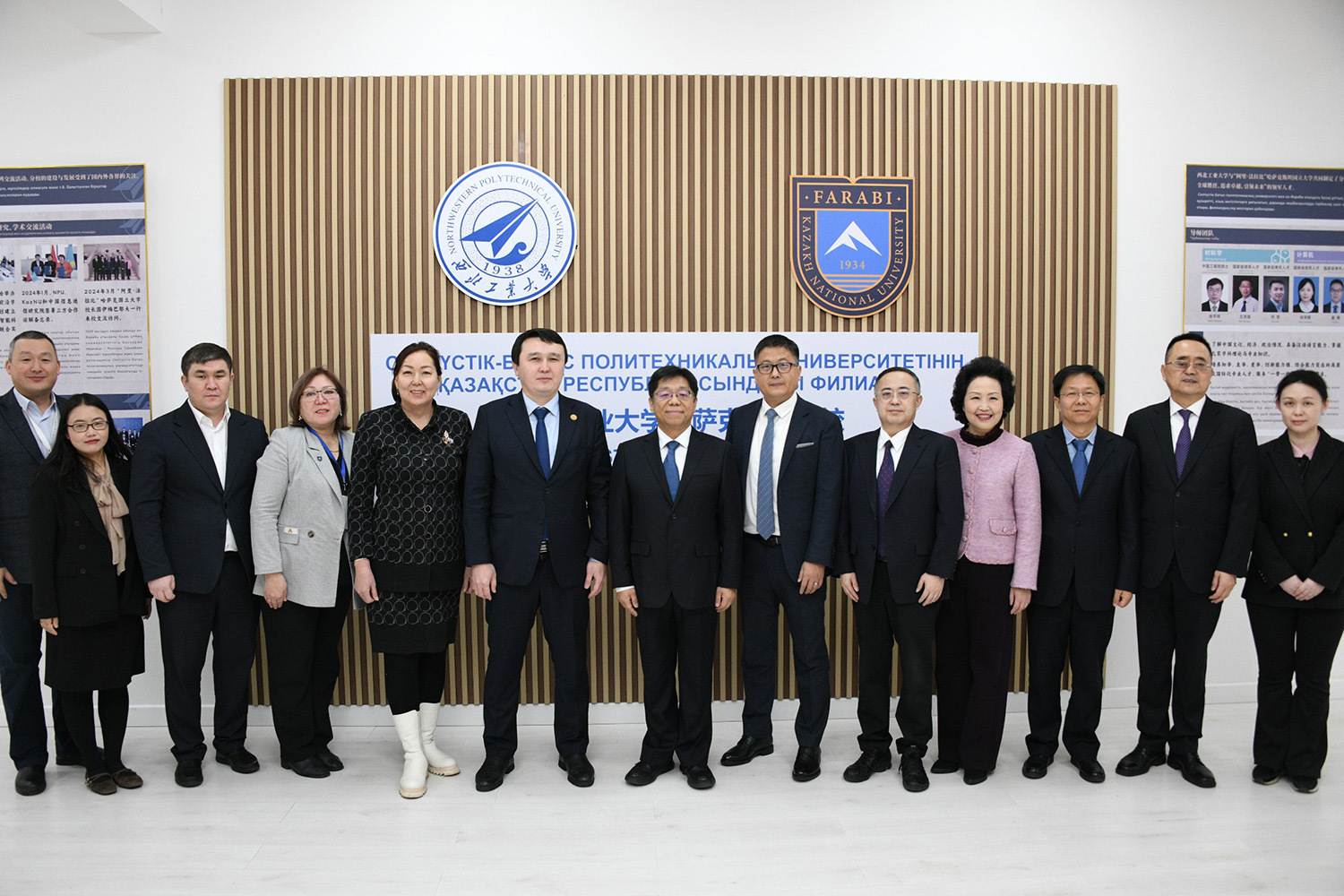- Main
- News
- Тhe Faculty of International Relations hosted a round table with the participation of master’s students of Al-Farabi Kazakh National University specializing in “International Relations” and “Regional Studies,” as well as members of a MGIMO
Тhe Faculty of International Relations hosted a round table with the participation of master’s students of Al-Farabi Kazakh National University specializing in “International Relations” and “Regional Studies,” as well as members of a MGIMO
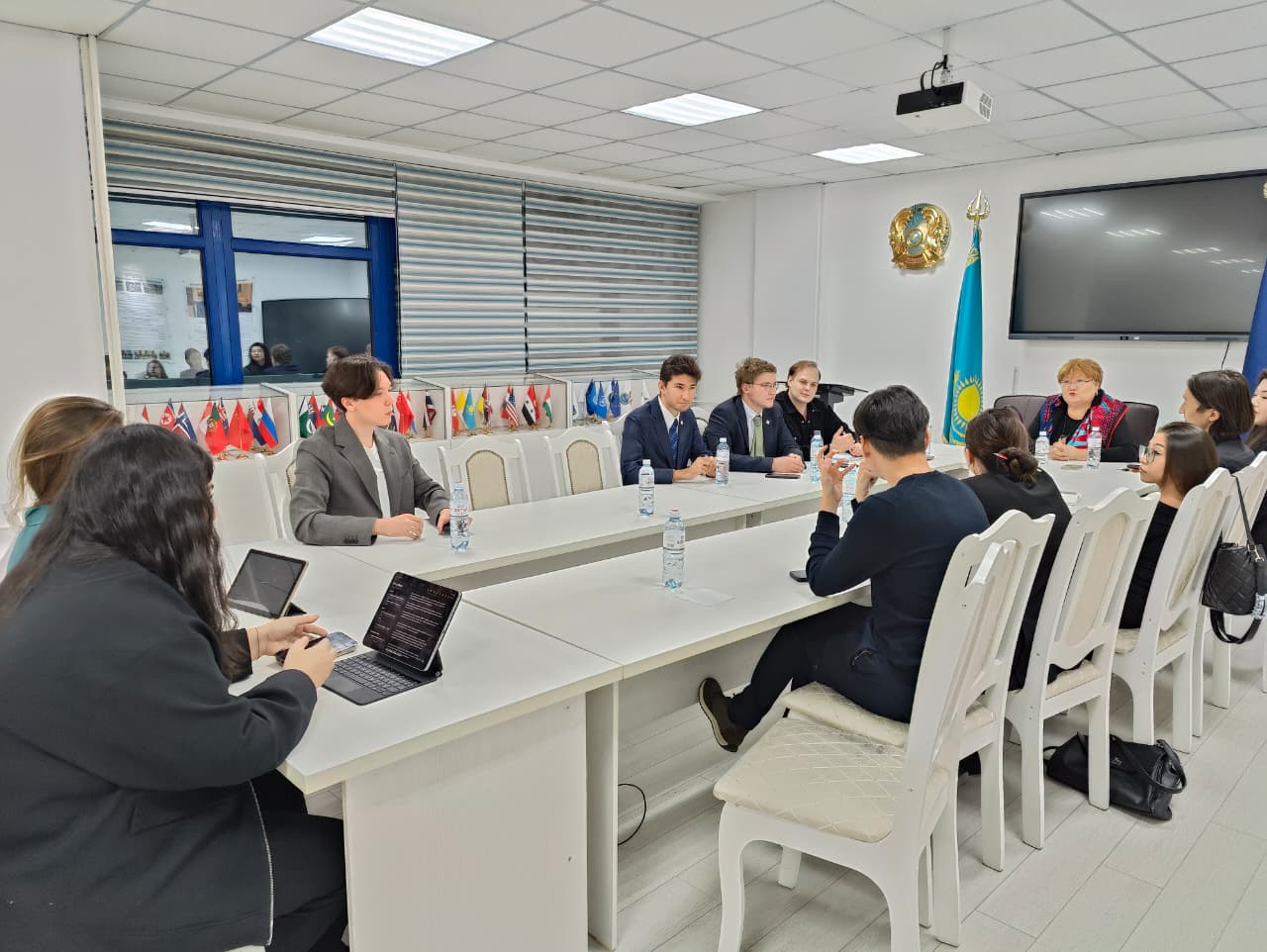
On November 13, 2025, the Faculty of International Relations hosted a round table with the participation of master’s students of Al-Farabi Kazakh National University specializing in “International Relations” and “Regional Studies,” as well as members of a MGIMO research group led by Sergey Miroslavovich Markedonov. The MGIMO delegation included Matvey Tsaryov, PhD student Nazar Kurbanov, and master’s student Nikita Tikhonov, who also serves as Chairman of the MGIMO Scientific Student Society. The discussion was moderated by Doctor of Historical Sciences and Director of the Center for Eurasian Studies, Professor G.A. Movkebayeva. The event was held in the context of the State Visit of the President of the Republic of Kazakhstan, K.K. Tokayev, to the Russian Federation and became an important platform for inter-university academic cooperation.
During the meeting, the participants examined key dynamics of contemporary world politics and Eurasian integration. The discussion focused on expanding public dialogue among citizens of the EAEU, enhancing understanding of the Union’s objectives and missions, promoting youth awareness of Eurasian integration within educational and youth policy frameworks, and informing young people about the most relevant political, scientific, socio-cultural, and public developments in neighboring EAEU member states.
Special attention was given to the growing significance of the BRICS+ format amid the ongoing transformation of global and regional architecture. The participants analyzed prospects for the further institutional development of BRICS+, the role of the New Development Bank, the potential expansion of the grouping through new members, as well as the implications of these processes for the global energy market and the international trade and economic system. Considerable interest was directed toward the opportunities and challenges facing Kazakhstan in its engagement with BRICS+. It was noted that participation in an expanded BRICS+ framework could complement Kazakhstan’s multi-vector foreign policy, strengthen economic ties with key Eurasian partners, and create additional conditions for expanding the country’s presence in member-state markets. At the same time, the importance of maintaining a balanced approach between global and regional integration trajectories—particularly within the EAEU, SCO, and Central Asian frameworks—was emphasized.
The round table served as an example of productive academic dialogue between young researchers from the two universities. Participants expressed their interest in further developing scientific cooperation, conducting joint research, and continuing discussions on pressing issues of international and regional politics. The event was organized by the Center for Eurasian Studies of Al-Farabi Kazakh National University.
